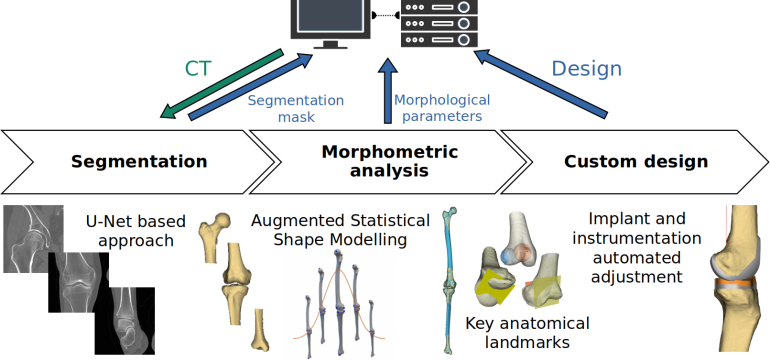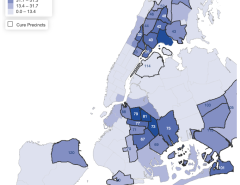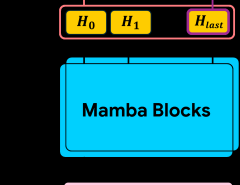Authors: Aziliz Guezou-Philippe, Arnaud Clavé, Ehouarn Maguet, Ludivine Maintier, Charles Garraud, Jean-Rassaire Fouefack, Valérie Burdin, Eric Stindel, Guillaume Dardenne
Published on: March 22, 2024
Impact Score: 7.8
Arxiv code: Arxiv:2403.15353
Summary
- What is new: A fully automated workflow for designing patient-specific knee implants using artificial neural networks and augmented statistical shape models, significantly reducing the time and manual effort required.
- Why this is important: Current solutions for personalized arthroplasty, specifically knee implants, are too slow and require manual intervention, making it challenging to integrate them into clinical routines.
- What the research proposes: The study introduces an automated pipeline that uses machine learning and shape modeling to create custom knee implants directly from patient CT scans, significantly reducing design time.
- Results: The workflow showed high accuracy in all steps: $0.4\\pm0.2mm$ for segmentation, $1.2\\pm0.4mm$ for bone reconstruction, and $0.6\\pm0.2mm$ for the final implant fitting, with the entire process taking about 5 minutes.
Technical Details
Technological frameworks used: Machine learning, Computer Vision
Models used: Artificial Neural Networks, Augmented Statistical Shape Models
Data used: 91 CT scans for training, 41 CT scans for evaluation
Potential Impact
Orthopedic implant manufacturers, Hospitals and clinics performing knee arthroplasty, Medical imaging software companies
Want to implement this idea in a business?
We have generated a startup concept here: CustomFit Ortho.




Leave a Reply